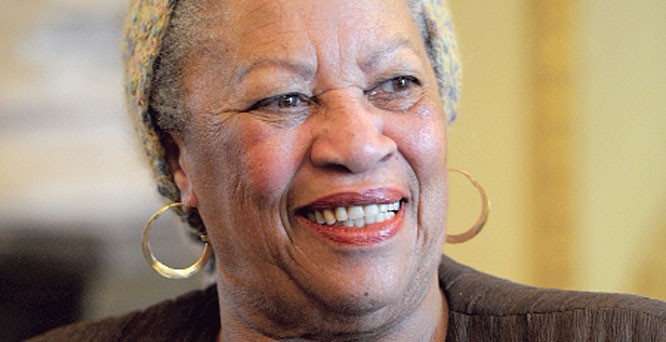
The first African-American woman to win Nobel Prize for literature, Toni Morrison, will always be remembered for her towering personality

"I have had reviews in the past that have accused me of not writing about white people … as though our lives have no meaning and no depth without the white gaze."
Toni Morrison: An author whose work deserves a wider viewership than granted, especially in post-colonial states like Pakistan. A social activist, a feminist, an author; a woman of immense calibre, capable of accomplishing innumerable feats and deserving of every honour given to her. The first African-American woman to win the Nobel Prize for literature and a queen in her own right, Morrison is and always will be remembered for all the right reasons.
She has long been celebrated for how she handled racist remarks and her take on racism as a social construct. Morrison was right when she said racism is used only for personal gain, it exists only because it profits the people who are incharge. She completely substantiated the invalidity of the question often asked of her, ‘Will you ever write on something other than race?’ She refused to be alienated from literature on the basis of her skin. The only words that can truly do her justice are her own, "There is no such thing as race. None. There is just a human race -- scientifically, anthropologically. Racism is a construct, a social construct and it has benefits. Money can be made off of it, people who don’t like themselves can feel better because of it, it can describe certain kinds of behaviour that are wrong or misleading, so it has a social function, racism."
It is refreshing to observe the plethora of diverse and remarkable women as protagonists. Her novels are a clear depiction of the real world, sugar coating was a concept she did not believe in. Which is why she described women in all their unidentified glory, especially African-American females. But these women are for every person who has ever been put down because of the unrealistic standards of beauty set by the West. Pecola Breedlove, the protagonist in one of her novels, The Bluest Eye, is driven mad by the unrelenting taunts of her society in Lorain, Ohio and her desire to have "blue eyes" which, she believes, is the one thing that can save her.
Morrison is unforgiving in describing how a white supremacist society destroys the self-esteem and every ounce of love a young African-American girl has for the colour of her skin. The heroines in Morrison’s books often rise from the ashes of a society too blind to see their beauty, too scared to acknowledge their strength. Her words are a message to every girl subject to torment because of her gender or appearance. According to her, you are defined by what you are able to achieve, not what others make you out to be.
Of all the pieces of literary work I have had the pleasure of reading or listening, Morrison’s 1993 Nobel lecture is, by far, one of the most empowering. Her allegorical stance on language, race, youth and society as a whole sends shivers down my spine. Her voice and her prowess over the English language is phenomenal. The old woman, blind and wise, the children that wanted to defy her, the bird in their hands, dead or alive and what she, Morrison, understood from the story, what language meant to her, the importance it holds. How language can die without it being forgotten or going extinct. How it can be distorted into becoming a shell of what it used to be; and used to spread and promote hate, to instil fear where it should pique curiosity.
This speech needs to be taught; especially in Pakistan, especially when we have come so close to losing our identity. In the words of Morrison herself, "There is and will be rousing language to keep citizens armed and arming; slaughtered and slaughtering; stirring, memorialising language to mask the pity and waste of needless death. There will be more diplomatic language to countenance rape, torture, assassination. There is and will be more seductive mutant language designed to throttle women, to pack their throats like paté-producing geese with their own unsayable, transgressive words". She then goes on to describe in detail the generation gap that has plagued the Earth for decades. The youth never being taken seriously, their questions never answered, are somehow still expected to grow up. The accusation looms above them ominously, "you have given us no language. There is no bird in our hands".
"You want us to have your old, blank eyes and see only cruelty and mediocrity. Do you think we are stupid enough to perjure ourselves again and again with the fiction of nationhood? How dare you talk to us of duty when we stand waist-deep in the toxin of your past?"
So how do you describe a woman who stood so strong, so tall, in the face of a society that fuelled itself by the continual degradation of the ‘outsider’? How can words alone do her justice when hers could play with the strings of people’s hearts? How do you pay tribute to a woman whose words are as divine as ichor? Morrison leaves behind a powerful literary legacy. Her words take you by the shoulders and show you a world run by chaos and entitlement. A world we wish did not exist and end up treating it so. But it is there, ever-present and ever-growing. Morrison made sure it did not go unnoticed. She leaves behind timeless work, that acts as a reminder of both how far we have come and how low humankind can sink. She uses language as it is meant to be used; to set free and to educate.